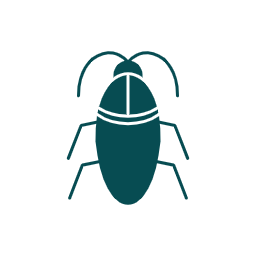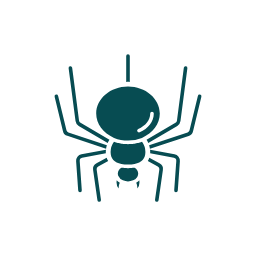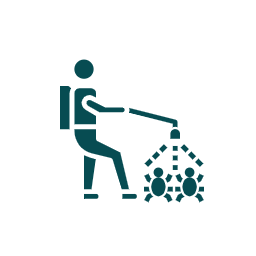When it comes to birds and their droppings, most people think about unsightly messes on windowsills, cars, or sidewalks. But the reality is far more serious. Bird droppings and bird poop pose a significant health risk, create expensive property damage, and are responsible for spreading over 60 diseases—some of which can be fatal.
This article dives deep into the hidden dangers of bird droppings, exploring the bird diseases they carry, the impact on your property, and what you can do to protect yourself and your space. Whether you’re dealing with a pigeon problem on your balcony or a full-blown infestation in your warehouse, knowing the risks and taking action is critical for both safety and health.
Understanding the Health Risks of Bird Droppings
One of the most alarming issues with bird droppings is their potential to trigger serious health risks, especially in areas where birds gather in large numbers or where droppings are left to accumulate. These droppings can become hosts for a variety of avian pathogens.
When droppings dry, they can become airborne, releasing microscopic particles that are easily inhaled into the respiratory system. This puts people at risk of developing respiratory disease, especially in enclosed or poorly ventilated spaces. Individuals with weakened immune systems are particularly vulnerable.
Diseases such as histoplasmosis, cryptococcosis, and psittacosis are all linked to exposure to bird droppings. Histoplasmosis, caused by a fungus found in soil contaminated by bird and bat droppings, can lead to flu-like symptoms and even impact the central nervous system in severe cases.
Bird Droppings and the Spread of Disease
Birds like the pigeon, starling, and other pest bird species are known to carry bacteria, viruses, and parasites that can be transferred to humans. Bird droppings can lead to infections through direct contact, inhalation, or contamination of food or the water supply.
Bird faeces can contain salmonella, E. coli, candidiasis, avian flu, encephalitis, and other zoonotic diseases that affect both humans and pets. The bird poop left on rooftops, ledges, or around nests isn’t just a smelly inconvenience—it’s a biohazard.
Bird droppings can cause infections when people come into contact with contaminated surfaces or inhale fungal spores. This is particularly dangerous in residential areas where children play or food is prepared. It’s also a threat in commercial settings, where bird activity near food or water sources can jeopardise public health.
Property Damage Caused by Bird Droppings
Aside from health risks, droppings can cause damage to buildings, vehicles, and infrastructure. The uric acid content in bird droppings is highly corrosive and can damage property—especially paint, metal, and concrete.
When left untreated, droppings also clog gutters, corrode air conditioning units, and degrade roofing materials. Over time, this leads to significant damage to your property, resulting in thousands of dollars of damage. Buildings in urban environments or near roosting or nesting sites are particularly at risk.
Accumulated droppings also weaken building materials, create slip hazards, and reduce kerb appeal. In the case of commercial buildings, this can mean reduced property value, tenant dissatisfaction, and lost revenue.
The Airborne Threat
Dried bird droppings pose an additional threat due to their ability to become airborne. The dust and fungal spores released can irritate the lungs and trigger severe infections like fungal infection, histoplasmosis, and encephalitis.
These conditions are especially dangerous to workers in industries like construction, maintenance, and cleaning, where droppings are disturbed during routine tasks. Proper precautions such as using a respirator mask and gloves are essential during any cleanup operation to avoid inhalation of particles.
In poorly ventilated areas, such as attics or old buildings, the risk of respiratory illness skyrockets. Without effective bird management strategies, even a seemingly minor bird and bat droppings issue can escalate into a severe public health concern.
The Role of Pigeons in Urban Bird Problems
The humble pigeon is often the poster child of urban bird poop problems—and for good reason. These birds are prolific breeders, often nesting in large flocks and producing vast amounts of droppings in a short period.
Pigeons are known to carry diseases like salmonella, avian flu, and psittacosis, all of which pose a health risk to humans. Their presence in cities leads to the buildup of accumulated droppings on sidewalks, statues, rooftops, and public spaces, turning once-beautiful locations into unsanitary hazards.
Because pigeons frequently roost and nest in hard-to-reach areas like building eaves, signage, and ventilation ducts, their droppings go unnoticed until the damage is done. Routine inspections and bird control measures are essential in keeping their population and waste under control.
Deterrents and Cleanup
Once an infestation is identified, professional cleanup is vital. Specialised bird dropping cleaners are required to safely remove faecal matter, decontaminate affected areas, and prevent droppings from becoming airborne during the process.
Using proper deterrent methods—such as physical barriers, reflective devices, or sonic repellents—can help keep birds away and prevent future build-up. Installing deterrents around common roosting and nesting sites reduce the risk of exposure to infected bird waste and protect your building from further damage.
Importantly, you should always wash your hands thoroughly after any potential exposure to bird droppings to minimise the risk of infection. DIY cleanup should be avoided unless appropriate PPE (personal protective equipment) is used, including gloves, goggles, and a respirator mask.
Why You Need Professional Bird Control Services
Given the health risks, environmental hazards, and high cost of property damage, professional bird control is not just recommended—it’s essential. Bird control services are trained to identify vulnerable entry points, remove existing droppings, and install preventive solutions tailored to your building.
Whether it’s installing spikes, nets, or other deterrent systems, control services offer long-term protection from dropping problems. They ensure that areas affected by bird poop are thoroughly cleaned and decontaminated and future bird activity is minimised.
Professionals also understand the legal and environmental regulations surrounding avian species, ensuring that any methods used are humane, ethical, and compliant. This protects your investment while promoting safety and health for everyone in and around your property.
Final Thoughts
The truth is clear: bird droppings are more than just a cosmetic nuisance—they are a serious health risk and a costly threat to property. From bird diseases like histoplasmosis and psittacosis to irreversible damage to your property, the dangers of ignoring dropping problems are far-reaching.
Prevention is always better than cure. Whether you’re a homeowner, property manager, or business owner, investing in bird control now could save you from dollars of damage and devastating health consequences later.
If you’re facing a dropping problem or simply want to keep birds off your premises, it’s time to call in the experts. Contact Pest2Kill—Sydney’s trusted name in pest control and bird management. We provide expert inspection, effective deterrents, and safe cleanup to restore your property and protect your well-being.
Let’s stop dropping them before they become disasters. Reach out to Pest2Kill today for a tailored, safe, and proven solution
FAQS
How dangerous is bird poop to human health?
Bird poop can pose serious risks to your health, especially because birds carry a variety of pathogens. In fact, bird droppings can carry over 60 diseases, some of which are transmitted to humans from birds. If not cleaned properly, dried droppings can become airborne, increasing the risk of airborne infections like bird flu and cryptococcosis.
Can bird diseases be spread through dried bird droppings?
Yes, dried bird droppings are one of the most concerning sources of infection. When droppings become airborne, they may carry yeast found in the intestinal tract of infected birds, including fungal spores like Histoplasma capsulatum. These spores are often found in bird excrement and can cause respiratory diseases if inhaled—especially in people with weakened immune systems.
What is the connection between avian mites and bird droppings?
Avian mites are tiny parasites that often thrive in bird excrement or near nests. While mites don’t live in the droppings themselves, birds carry these pests, and their presence near roosting and nesting sites increases the chances of infestations. Some mites can bite humans and pets, adding to the risks to your health associated with bird infestations.
Can bird excrement really damage property?
Absolutely. Over time, bird excrement can damage property in multiple ways. It can contain uric acid, which is highly corrosive to paint, stone, and metal surfaces. When droppings build up in gutters or on roofs, they can also contribute to water damage by blocking proper drainage and weakening building materials.
Do birds really carry over 60 diseases?
Yes, it’s true—birds carry a wide variety of pathogens and are known to carry over 60 diseases that can affect humans and animals. From respiratory illnesses like bird flu and psittacosis to parasitic infections involving mite infestations, the scope of potential threats is wider than many property owners realise.
What makes dried bird droppings a health hazard?
When dried bird droppings are disturbed, they can become airborne, releasing harmful spores and bacteria. These particles can enter the respiratory system, especially in enclosed areas or during cleanup, increasing the risk of airborne infections. The spores may also contain yeast found in the intestinal tract of birds, which can lead to serious risks to your health.
How can I keep birds from returning to my property?
To keep birds away, it’s important to use humane deterrents like spikes, nets, or visual repellents. Reducing access to roosting and nesting spots helps limit exposure to bird excrement, which can damage property and increase the likelihood of diseases transmitted to humans from birds. A professional bird control service can implement solutions tailored to your property’s specific bird activity.














